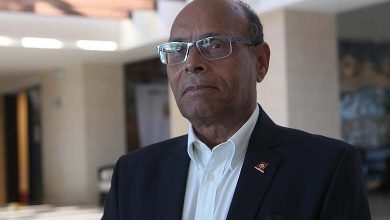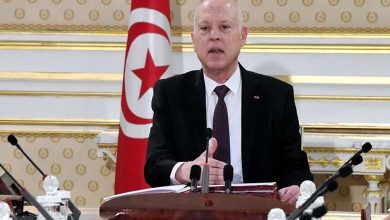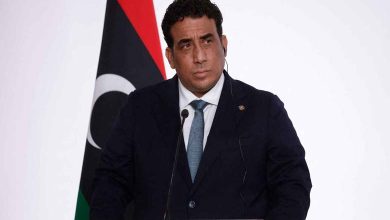Osama Hamad Urges Implementation of Decision to Cut Funding to the Dbeibeh Government
The Benghazi Appeals Court rules to suspend the implementation of Abdul Hamid Dbeibeh’s decision to grant temporary financial credits

The appointed Libyan government by the parliament in the eastern part of the country, led by Osama Hamad, has called on regulatory authorities and the Attorney General to take appropriate measures to implement the judicial ruling regarding the suspension of the implementation of the outgoing Government of National Unity’s decision No. 828 of 2023 authorizing the opening of temporary monthly credits.
Hamad’s call came after the Benghazi Appeals Court decision to suspend the implementation of Abdul Hamid Dbeibeh‘s decision to grant permission to open temporary financial credits.
According to a statement issued by the eastern government, the judicial ruling adds to a series of similar rulings issued by the judiciary to stop what it described as “the waste of public funds by the outgoing government.”
The statement warned that any payments made based on Dbeibeh‘s decision would be invalid, and the Central Bank should refrain from executing any payment orders issued by the outgoing government.
The Second Administrative Chamber of the Benghazi Appeals Court issued a ruling on Thursday, in an urgent matter, to suspend the implementation of the contested decision.
The parliament-appointed government expressed satisfaction with the decision and the independence of the Libyan judiciary. It stated, “This ruling was issued in accordance with the law and reality, complementing the strenuous efforts, administrative, and judicial measures taken to preserve public funds from the waste of the outgoing government, which persists in squandering the livelihoods and resources of Libyans.”
It called on the Central Bank of Libya not to execute any payment orders issued by the Dbeibeh government, in compliance with the judicial ruling, stipulating that it “continues directly to disburse the salaries of state employees on their due dates.”
In return, it warned against any leniency by the Central Bank in carrying out any expenditures at the request of the outgoing government, which could constitute a criminal and disciplinary offense, stating that “the Libyan Penal Code imposes provisions and penalties for anyone who refuses to implement judicial rulings, especially since the ruling issued today has been given its executive form, and it has become enforceable.”
The Osama Hamad government stated that it and all state institutions would not stand idly by in the face of any failure to implement the judicial ruling, adding that “this ruling adds to the other judicial rulings issued during the past period canceling the decisions of this outgoing government regarding the disbursement of public funds without just cause.”
It concluded by stating that “all these decisions confirm the loss of legitimacy and legality by the Dbeibeh government, which permits it to remain in power and continue to exercise any financial activity or political role in the Libyan state.”
The political and financial pressure is tightening on Dbeibeh, who faces intense internal pressures and accusations of squandering public funds and excessive public spending, while there have been no significant development results or improvements in the living standards of Libyans.
A letter sent by the senior official, the Governor of the Central Bank of Libya, to Dbeibeh, showed the extent of the disagreement between the former allies, as well as the response of the Libyan House of Representatives to the demands of the senior official regarding the tax on the foreign exchange rate, indicating shifting alliances and that the head of the unity government is fighting battles on more than one front to remain in power.












